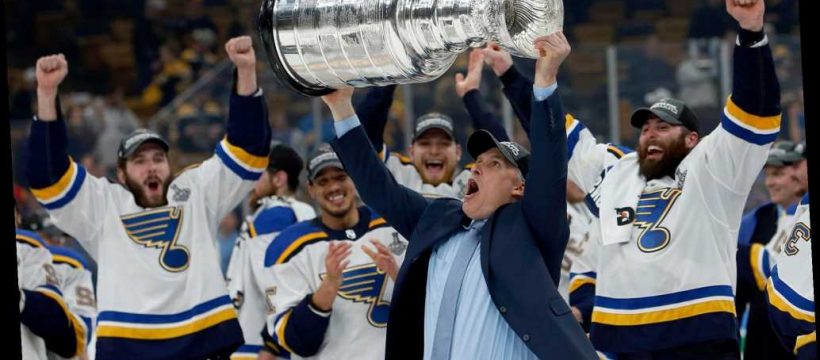The NHL’s message to its players to self-quarantine in their home cities for “a week or so” is filled with implied optimism, the league suggesting the next phase in its “pause” mechanism might be to authorize small-group informal skates at team practice facilities.
That would be followed by a brief training camp to precede resumption of the regular season and a full Stanley Cup playoff tournament, even if played in spectator-free arenas.
If this were early December, I’d tell you that if ifs and buts were candy and nuts, we’d all have a wonderful Christmas.
There is nothing at all wrong about being optimistic and planning accordingly as long as the folks running the show are prepared for the worst. In this case, of course, that would mean cancelation of the rest of the season and the playoffs.
And that does seem to be the most likely scenario.
The NHL did that once before all on its own, of course, wiping out the entire 2004-05 season and the playoffs because of a labor dispute. But even when Gary Bettman announced cancelation of that season on Feb. 16, 2005, an effort to revive the season was immediately undertaken before failing two days later. Had an agreement been reached, the league was prepared to play a 28-game season before the playoffs.
Which is to suggest that if the league can get back onto the ice within the next few months, few potential formats would be dismissed as illegitimate. The commissioner will hand out the Cup if he possibly can, even if to no boos in a spectator-free building.
By receiving their final three paychecks, as guaranteed Friday by the league, players will have earned 100 percent of their pay even though the league will have collected approximately 85 percent of anticipated regular-season revenue. The responsibility for making up that shortfall would fall on the players, who would likely lose every cent of the 14 percent escrow deductions from their checks and might even owe the league a rebate. Beautiful!
But holding the playoffs in what essentially would become television studios if mass gatherings are still banned would at least allow the league to collect media-rights fees that would ease the athletes’ financial pain. It would also allow the league to crown a champion, which Sixth Avenue did not think all that important 15 years ago when measured against the importance of gaining a hard cap.
If the season is canceled, then the traditional calendar for 2020-21 can go forward, though the draft might become a teleconference affair. Buyouts and free agency can proceed on course. But first, the league and union would have to negotiate a cap divorced from the final 2019-20 numbers. If the cap is set at either the same or lower than this year’s $81.5 million, amnesty buyouts may be required to enable the system to work.
The potential magnitude of escrow losses for this season may not only affect the NHLPA’s approach to next season’s escalator, it may impact the union’s strategy in its CBA negotiations if escrow hawks dominate the agenda.
If, however, the NHL does get back on the ice and the playoffs extend into July, next season’s calendar would have to be adjusted. Buyouts, the draft and free-agency dates would all require change. First, of course, the cap would have to be established. Again, the NHL has some experience formatting an accelerated summer schedule following a canceled season.
Hockey in July? Well, Game 7 of the 1995 Cup Final that became unnecessary when the Devils swept the Red Wings had been scheduled for June 30 following the season whose opening was delayed until late January by the owners’ first lockout.
Let’s say that sports leagues are given the approval from health agencies and local governing authorities to play in some form toward the end of May, even though that might be wildly optimistic. Players will have been off for essentially 10 weeks and no, they would not remain en masse in their respective home cities holding informal skates for a couple of months.
In other words, you’d need a week for training camp. The league staged five-day camps in mid-January 2013 preceding a 48-game schedule following Owners’ Lockout III. So let’s say the NHL is up and running in some fashion in early June. Under that scenario, the league would almost be required to go straight to the playoffs that would surely run well into July.
The playoffs would be followed by a month or six weeks of stuffed off-season activity that would include qualifying offers, buyouts, free agency and the draft. The 2005 draft was conducted on July 30.
If the NHL teams can play, they’ll play. They’re planning for it But that does not mean you, they, or anyone should plan on it.
Madison Square Garden management is working on a plan to take care of workers at all MSG properties in New York, Slap Shots has learned. That would include Radio City Music Hall and the Beacon Theatre, in addition to the Garden.
“We’ve already taken immediate action this week,” an individual familiar with the situation said. “We’re working on a longer-term plan.”
Source: Read Full Article

